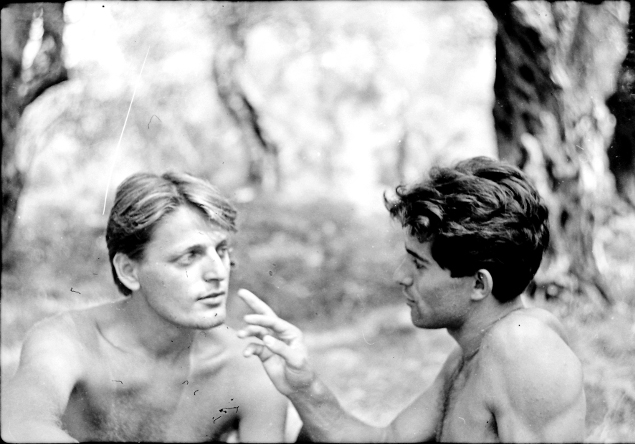Fading Lights are Fading

Opening Reception Friday 27 September, 6 – 8pm
Martin Healy • Tom Hunter • Dragana Jurisic • Shane Lynam • Christine Sullivan and Rob Flint • Commissioned text by Matt Packer
Fading Lights are Fading takes as its jumping off point artists who are lens-based, and whose work suggests the individual trying to find a sense of identity and place in a greater social and political dynamic. The work is also conscious of the ‘lens’ or of its own making, so also making the viewer consider the process and visual construct, often making art historical references.
Martin Healy works predominantly with the mediums of film and photography, exploring the connection between belief systems and perception and the point at which fact and fiction coalesce in a recorded image or object. The subjective interpretations of what is perceived as real often provide a starting point for his work. The use of temporal or spatial dislocation as a motif in early science fiction literature is referenced in the work and sites of technological or structural obsolescence are used as formal devices to explore this. These concerns have informed recent film works which draw on cinematic convention in form and structure. In the work for this exhibition Healy presents a photographic diptych Did I solicit thee from darkness. The photographs were taken at the Mer de Glace glacier, the site of the first meeting between Victor and his creation in Mary Shelley’s novel Frankenstein. The title is taken from John Milton’s Paradise Lost, quoted in the opening pages of the book.
Tom Hunter was born in Dorset and moved to Hackney in 1986 where he lived in squats for 16 years. He began studying photography when he was twenty-five, and graduated with first-class honours from the London College of Printing (now London College of Communication) in 1994. He received a Master’s degree at the Royal College of Art, London, in 1997. Tom then embarked on a two-year trip across Europe on a double decker bus, in which time he completed a series of portraits depicting his fellow travellers. His most recent work is a series of narratives that draw on scenes from urban east London and headlines from his local newspaper, the Hackney Gazette, using classical paintings for inspiration.
Dragana Jurisic’s work looks at the effects of exile and displacement on memory and identity. Once a person loses his or her original world, they realise how fragile all the other worlds are. Photography contains elements such as fleetingness, which allow it to capture that sense of rootlessness and dislocation with relative ease. Both exile and photography intensify our perception of the world. In both, the memory is in its underlining core. Both are characterised by melancholy. As Salman Rushdie said, the exiles live “more comfortably in images, in ideas, than in places.” Fragments of the Atlantis is a part of a larger body of work, YU: The Lost Country (2013). YU is based on the journey of Rebecca West’s as outlined in her masterpiece Black Lamb and Grey Falcon (1941). At Easter 2011, Jurisic started retracing Westʼs journey and re-interpreting her masterpiece by using photography and text, in attempt to re-live her experience of Yugoslavia and to re-examine the conflicting emotions and memories of the country that was.
Shane Lynam presents new work form the Fifty High Seasons series, documenting the Mission Racine, a project initiated by President General de Gaulle in 1963. It aimed to turn the Languedoc-Roussillon coastline into a series of resorts centered around leisure and offer an alternative source of income for the region. The original vision behind the project was ahead of its time and was characterised by complex and unusual urban planning. Although some of the promise of the original vision has lost its shine and the modern architecture now appears dated, the central values, particularly the idea of offering affordable summer holidays for the average citizen, remain key to how the area is managed.
Christine Sullivan and Rob Flint have collaborated since 2006 on art which uses text, description and the voice to de-familiarise or make ritualistic things which are already well known, and to explore the way visual experience is refracted by the other senses. Recent work has explored film narrative, and the aspirational clamour of publicity and low-budget advertising. In YOU TOO CAN LOSE a clash of words and half-familiar shapes evokes, without delivering, the promise of the image in it’s current ubiquity. A grey aluminium A-board, familiar from global high streets, holds a pair of posters filled with the dislocated spectacle of hyperbolic speech and the serene indifference of objects.
James Joyce Street
Dublin 1
